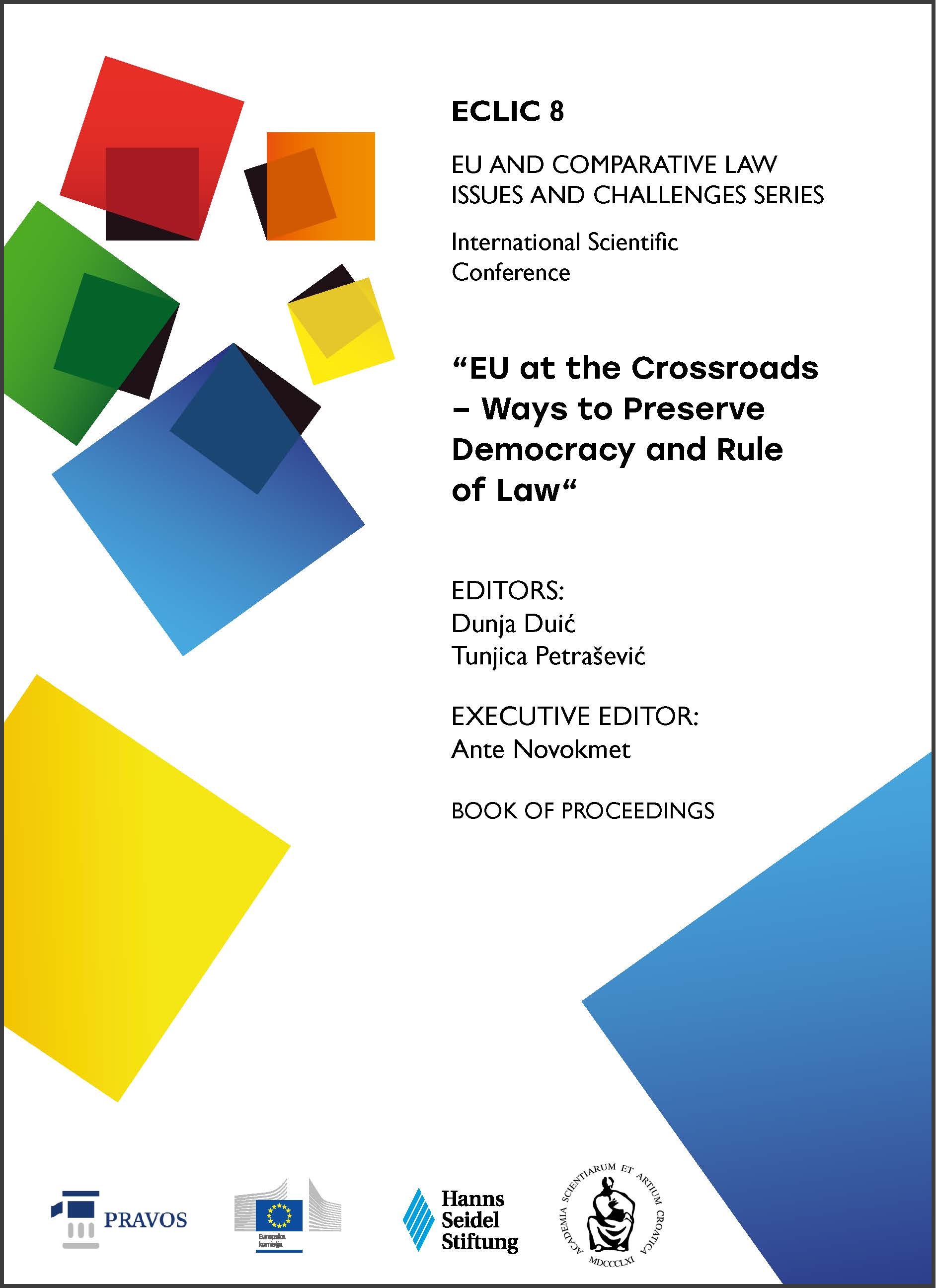THE ROLE OF SUB-MUNICIPAL SELF-GOVERNMENT IN STRENGTHENING DEMOCRACY
DOI:
https://doi.org/10.25234/eclic/32312Abstract
The basis of every democratic legal order is the involvement of citizens in decision-making. The Member States of the European Union have established such a legal framework that encourages democracy, especially the involvement of citizens, openness and transparency, the principle of subsidiarity and other principles expressed in the corresponding legal documents. Numerous scientific studies have proven that the Europeans expect much more from democracy than the minimum. The model of liberal democracy rests on achieving the widest possible consensus when making decisions. Nevertheless, citizen involvement in making political decisions has its shortcomings, which are often overemphasized, all with the aim of excluding citizens from the decision-making process on public policies. The biggest opponents of true citizen involvement are politicians whose “power” is limited by citizen involvement models. One of the key arguments against citizen involvement is the inability and reluctance of “ordinary” citizens to make quality decisions. Inclusion and participation models are very diverse. This paper puts an emphasis on realizing the principle of subsidiarity through citizen participation in decision-making at local levels through sub-municipal self-government form.
This paper presents the results of research aimed at gaining insight into the attitudes and opinions of local politicians (chiefs/mayors, presidents of representative bodies of local self-government units and council members of sub-municipal committees) in Osijek-Baranja and Vukovar-Srijem counties on the need for and opportunities for citizen participation through sub-municipal self-government form. For the purposes of the research, a questionnaire was prepared and sent to the respondents via e-mail. The starting hypothesis of the paper is H1: Local politicians do not support sub-municipal decentralization. Descriptive statistics and appropriate statistical analyses were used to analyse the research results (Kruskal-Wallis H test with Bonferroni test as a post-hoc test, Mann Whitney U test, Kendall's Tau-b correlation coefficient (τb), Cramer's V (φc) and Ordinal Regression PLUM analysis). The results show statistically significant differences in the responses between individual categories of respondents.
In addition to the introductory part, the paper consists of a theoretical part that argues the importance of citizen participation in decision-making as a key element of democracy, a description of the methodology of the conducted research, research results, and finally the conclusion. The paper’s contribution to administrative science is reflected in a comprehensive theoretical analysis and original research results that can serve as a basis for empowering citizens and their true involvement in decision-making.
Downloads
Published
How to Cite
Issue
Section
License
Copyright (c) 2024 Danijela Romić

This work is licensed under a Creative Commons Attribution-NonCommercial 4.0 International License.
Authors retain the copyright on the papers published in the Journal, but grant the right of first publication to the Journal. Papers accepted for publication or already published in ECLIC of the Faculty of Law in Osijek may be published by the author(s) in other publications only with proper notice of its previous publication in ECLIC.


